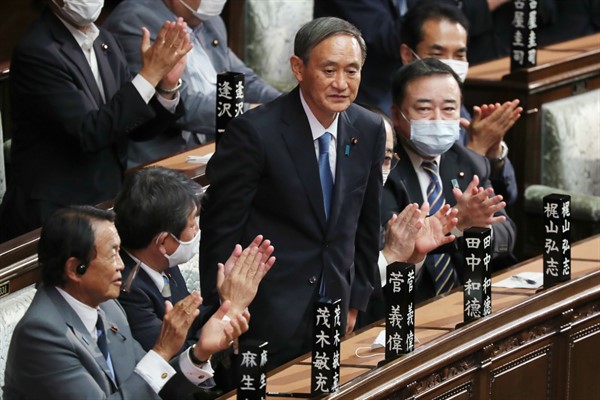After Abe Shinzo’s abrupt announcement last month that he was stepping down as prime minister of Japan due to health issues, three senior members of the ruling Liberal Democratic Party announced they would compete in an intraparty election to replace him. They held press conferences and campaign events. Media outlets organized televised debates. Opinion polls gauged each candidate’s popularity.
It had all the trappings of a normal election. Yet for anyone paying attention, the result was a foregone conclusion. Suga Yoshihide, Abe’s longtime right-hand man, had a virtual lock on the votes needed to win. Even before Suga officially declared his candidacy, five of the LDP’s seven factions had confirmed their support for him, giving him an overwhelming advantage among members of the Diet, Japan’s legislature. And after Abe announced his resignation, the LDP said it would follow emergency rules and hold a restricted leadership vote, in which only lawmakers and representatives from local chapters across Japan’s 47 prefectures were eligible to cast ballots.
Had the party followed its standard electoral procedure and allowed a more inclusive election, the other two candidates—Kishida Fumio, a former foreign minister, and Ishiba Shigeru, a former defense minister and prominent rival of Abe’s—might have had a fighting chance. LDP officials justified the emergency vote by arguing that they needed to organize a quick transition of power given Abe’s illness, but it was widely seen as a ploy by the ruling party’s old guard to tip the scales in favor of Suga.

